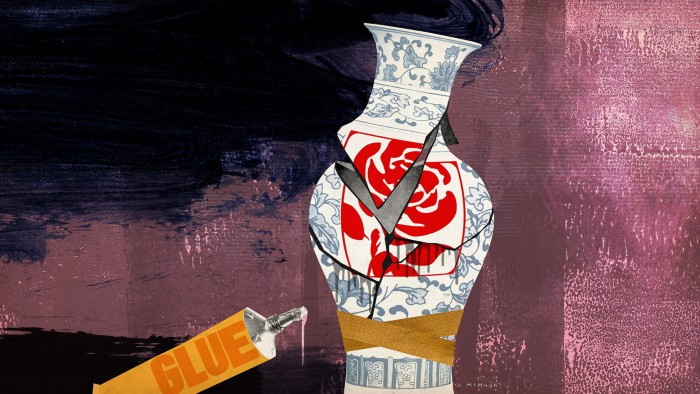Unlock the Editor’s Digest for free
Roula Khalaf, Editor of the FT, selects her favourite stories in this weekly newsletter.
Since coming to power, the thing Labour has most successfully communicated is helplessness. A sense of despair has spread to businesses, to households, to the Parliamentary Labour party and across Westminster.
It has become commonplace to talk of Sir Keir Starmer having had the “worst start” of any British prime minister. Given that he has not, to my knowledge, developed a fixation with the leader of another country, as Anthony Eden had after a year in office, or been forced from it following an economic disaster, as Liz Truss was, that seems wide of the mark.
We should also remember that after Eden’s catastrophic obsession with Egyptian leader Gamal Abdel Nasser curdled into a military adventure that shattered British power and prestige, the Conservatives still went on to win with an increased majority.
From doldrums to landslide is a well worn path. In 1966 Harold Wilson, whose government shares many characteristics with Starmer’s, won again convincingly. As did Margaret Thatcher in 1983, who after a year in office was extremely unpopular, her party trailing Labour in the polls.
The next election is not due until the summer of 2029. And Starmer enjoys considerable advantages over his political opponents: not least the fact that he has a greater ability to shape events to his favour. He leads all would-be replacements in other parties on the question of who makes the best prime minister. Nigel Farage’s Reform has not yet enjoyed the 20-point leads or the sort of huge by-election victories generally seen as a prerequisite for opposition parties to turn midterm poll leads into general election victory.
People, whether inside or outside the Labour party, shouldn’t be too hasty to declare this government dead and buried. Even as British voters have become more willing to shop around, we haven’t yet shaken off our marked tendency to stick with the devil we know.
Starmer’s Labour could — and might — turn things around, with this difficult first year wholly forgotten. Difficult first years are the norm, not the exception, for British governments (in part because since 1929 no British government has left office without first being hit by some kind of economic crisis).
But what those inside Starmer’s administration need to remember is this: governments that did turn things around first had to acknowledge that it was going badly. Thatcher slowly but surely abandoned monetarism after 1981 and Geoffrey Howe’s tax-raising budget. The government of David Cameron slowed the pace of austerity once chancellor George Osborne bended to opposition from within the coalition and outside of it. All new ministers have to learn on the job — but Starmer’s learning curve still seems startlingly horizontal.
This government staggered from failing to impose a means test on the winter fuel allowance — a benefit that went to the wealthiest pensioners, most of whom did not vote Labour last time and are not part of their path back to Downing Street at the election — to trying to limit payments to some of Britain’s most severely disabled people, many of whom did vote Labour last time and whose support is crucial to their electoral coalition. As it stands, ministers are on course to repeat the same mistake over benefit payments to families with large numbers of children, who, again, tend to vote Labour — and this is a policy that directly contradicts the party’s manifesto commitment to reduce child poverty.
When it comes to economic growth, it’s stated central priority, the approach has, to put it kindly, been haphazard. Labour’s theory seems to be that if you make it more expensive to hire people, harder to hire from overseas, and more difficult to fire people, you will end up with greater economic dynamism.
The party also appears to think that it would be disastrous to raise taxes on the middle earners who secured big tax cuts under Cameron, but that ever-greater complexity and higher taxes on the largest and most mobile earners will have no negative consequences.
And as for the EU, the consensus is that the best and most economically optimal relationship just happens to perfectly coincide with the exact amount of closeness that Labour’s 2024 voters, given their range of views on Brexit, will tolerate without squawking.
What links this incoherent stew of policies together is that it is popular, or at least popular with Labour voters. It may turn out that the party is blessed indeed, and that the path to the UK’s economic revival runs through a policy mix that is united only by the fact Labour voters like the sound of it. Then again, it may not.
To turn things around, Starmer needs to start by acknowledging what is going wrong. Neglect of Labour MPs, who hear little from Downing Street or their prime minister, either in terms of personal niceties but more importantly in terms of what the government’s strategy actually is, has created a restive class of lawmakers who fear being one-termers and have lost faith in the strategy. They see that a combination of populist tax rises and ill-advised and novel burdens on businesses have hurt growth, and that the party’s manifesto promises on the condition of the public realm cannot be met without breaking its pledges on at least one of value added tax, income tax or national insurance.
The prime minister and his government needs, both in policy terms and political direction, to spell out a clear idea of how it will get to 2029 in a fit state to fight the next election. The alternative is to continue as now, with each and every Budget as a station of the cross, each more painful and difficult than the last but with no prospect of a surprise resurrection at the end.



